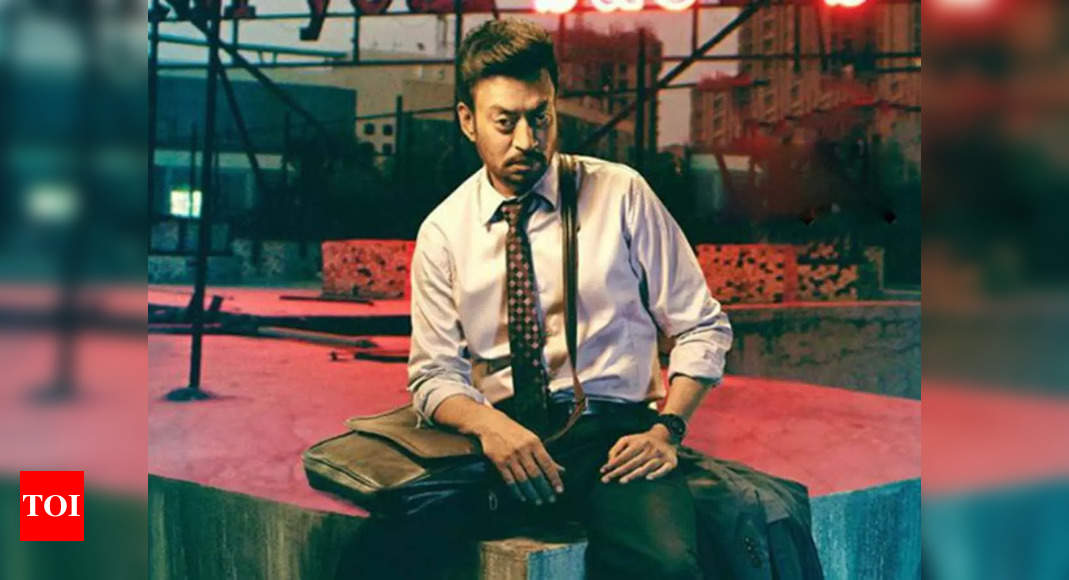In the strikingly shot (by cinematographer Jay Oza) opening we see Irrfan struggling to stay afloat through his office hours, fighting shy of going home because the spark has gone from his marriage and wife who watches cheesy song sequences on television to while away her time. Actually it was never there, the spark that is. In a wedding song that comes on at the end of the film, taken from Irrfan’s Dev’s marriage to Reena (Kirti Kulhari) seven years earlier, we see how mismatched and ill-at-ease the couple was.
This is a marriage where adultery is waiting to happen. And it does sooner than we expect. The takeoff point for the comedy is so steeply damning and done in the film with such humorous indulgence that we are left pretty dazed by the absurdity of it all. From the adulterous episode, Blackmail builds into an edifice of outrageous eventualities all bursting at the seams but never getting out of control, such is the director Abhinay Deo’s control over his characters, all victims of a scam that boggles the mind, tickles the senses and sets our imagination on the wildest, wackiest ride since Abhinay Deo’s Delhi Belly.
While the writing sparkles with a roguish splendor, and the director fills the frames with a fiendish glee, the narrative does spark off a distant pensiveness in indicating the breach of modern urban marriages. While Irrfan’s marital bedroom is shattered by Arunoday Singh’s presence, Arunoday’s own marriage, with the bully wife played with splendid spleen by Divya Dutta, is no laughing matter. She treats him like her dog. He doesn’t mind as long as his monthly allowance keeps coming. Arunoday sets aside his ego to make the husband a henpecked gold-digger.
Blackmail is a virgin territory in the comedy genre. It is heady and hedonistic, cocky and compelling in the way the comedies of Hrishikesh Mukherjee and Basu Chatterjee used to be. If only these veterans could see the sexiness that underlines all gender wars. Blackmail is a closeted Hrishikesh Mukherjee comedy with oodles of extra voluptuousness.
Blackmail was one the funniest film of the year. It had some wacked out characters, plus of course, a hero who likes to visit the office toilet with pictures of other people’s wives stolen from their desks.
Said director Abhinay Deo, “It was a gamble. Nobody would think of putting money into something so outlandish and outrageous. But my producers did, knowing fully well that this kind of comedy does not necessarily appeal to the audience that favours the more conventional comedies.”
Irrfan’s choice of films never failed to intrigue his audience. Blackmail was no different.
Said Abhinay, “The audience is habituated to being spoon-fed a certain kind of comedy. It is those comedies that make the big bucks at the box office. My biggest victory as far as Blackmail is concerned was when my humour was seen to carry forward the tradition of Hrishikesh Mukherjee’s cinema.”
Abhinay Deo’s parents veteran actors Ramesh Deo and Seema Deo are remembered to this day for their presence in Mukherjee’s Anand.




)



More News
Dev Patel Deletes Scene from Monkey Man for Political Reasons | – Times of India
Anushka Sharma’s Many Moods in the Stands Captured by Netizens | – Times of India
Jungkook’s heartfelt words: A source of warmth and inspiration for ARMYs